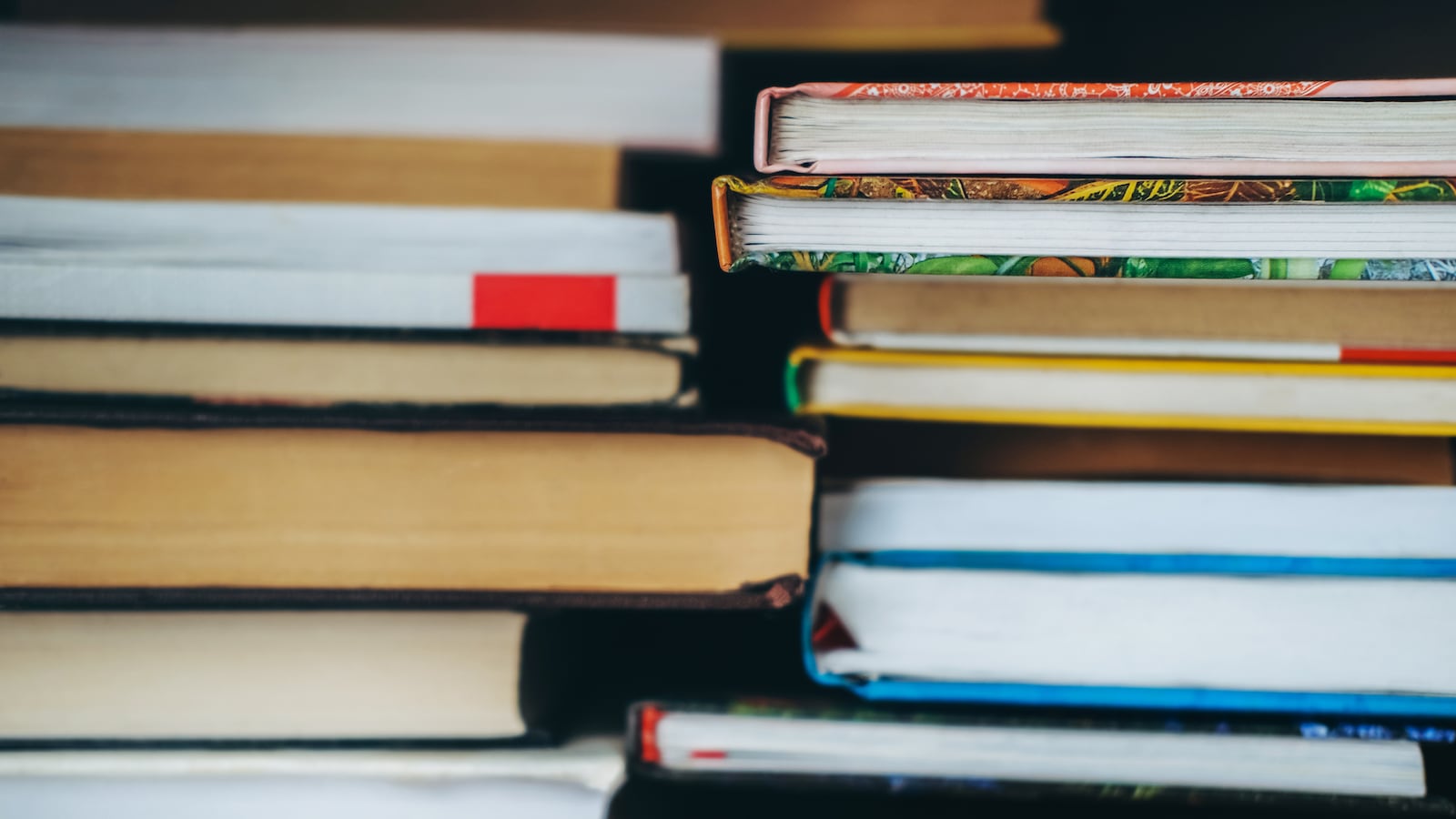This story is part of the P.S. Weekly podcast, a collaboration between Chalkbeat and The Bell. Listen for new episodes Wednesdays this spring.
Amid a nationwide surge in attempted book bans, one Queens school is taking the opposite approach.
At the Academy of American Studies in Queens, 10th grade students take a Regents-level English class devoted to the study of books that have historically faced challenges or bans — with students reading works like Elie Wiesel’s “Night” and Amy Tan’s “The Joy Luck Club.”
“All the teachers who teach it really try to tie in when and how these books were challenged historically,” said Amy Weidner-LaSala, an English teacher at the school. The course can help show students “how we open our minds and accept new things through literature,” she added.
It’s the second year that the class has been offered, said Weidner-LaSala.
The course comes at a time when efforts to restrict student access to books that deal with topics of race, gender, and sexuality are on the rise. During the first half of the 2022-23 school year, PEN America reported more than 1,450 cases where students saw access to individual books restricted or diminished in school libraries or classrooms nationwide — a 28% jump from the six months before.
Though a handful of districts in a few states saw a large share of book bans, the organization reported cases in 66 school districts across 21 states, including New York.
While historically book bans have come from both sides of the political spectrum, recent years have seen a surge in attempts from conservative movements and actors, said Shannon Oltmann, a University of Kentucky professor who has studied censorship and book banning. Those efforts have heavily targeted books that feature LGBTQ characters, as well as characters who are Black, Indigenous, or other people of color.
Yet for many students, those stories can be hugely important, especially in a city like New York, with a school system that’s home to more than 80% students of color.
“Having access to stories that look like their lives, that reflect the experiences they’ve had, help them feel seen, help them feel empowered, and help them to be more confident and resilient throughout life,” Oltmann said. “A lack of these resources, then, does exactly what you might think: It creates spaces where kids feel unsure, unwelcome, unsafe.”
Oltmann believes classes that focus on banned books can offer a unique learning opportunity.
“It has the potential to be really powerful, to teach kids about whose voice matters and doesn’t matter, whose voices are challenged or seen as intimidating or threatening,” she said. “It can also teach them about political power and the ways that it can be wielded.”
Tabassum Akter, a 10th grader at the Academy of American Studies, said her class on banned books has delved deeper into intense topics than previous English classes she’s taken. So far, her class has read William Golding’s “Lord of the Flies” and Khaled Hosseini’s “The Kite Runner.”
“It makes you think about the world more,” Akter said. “These books were books that you weren’t allowed to read at one point.
“It’s important to know why they were banned and why they should be read,” she added.
Still, Akter hopes that the class will go further as it continues to develop, incorporating more contemporary works into the syllabus.
“Most of the books that we read are very old,” she said. “I wish we got to read more modern books and things that can apply to our current society.”
Courses designed around frequently challenged books have also cropped up at colleges and universities around the country.
To Ansley Erickson, a professor of education history at Columbia University’s Teachers College, the rise of banned books courses follows a tradition in American education. When schools and other institutions have historically denied education to young people on topics like sex education or Black history, communities have formed their own spaces to share knowledge, Erickson said.
“It’s not just ironic to respond to book bans by having this class — it’s actually, truly part of the tradition of American education,” she said. “People will find ways to learn what they need to know, and book banning efforts really can’t stop that.”
Tanvir Kaur is a high school senior at the Academy of American Studies in Queens and an intern at The Bell.
Julian Shen-Berro is a reporter covering New York City. Contact him at jshen-berro@chalkbeat.org.


